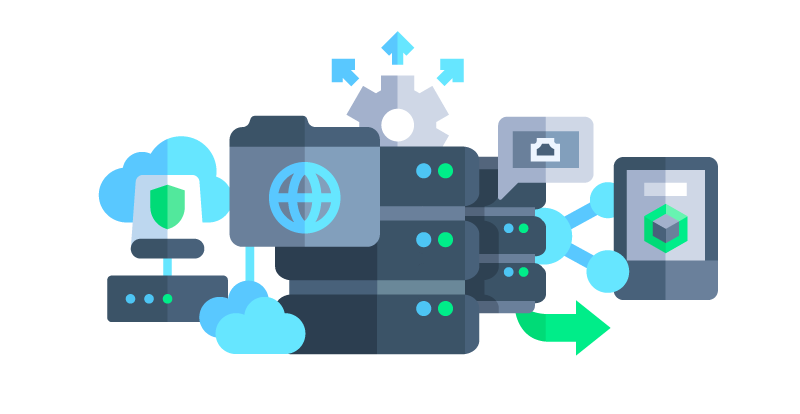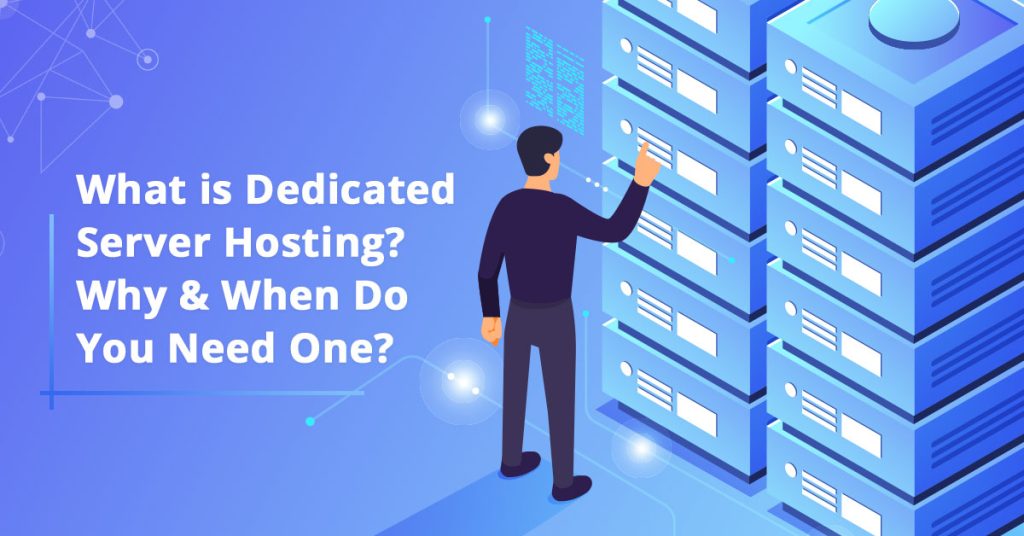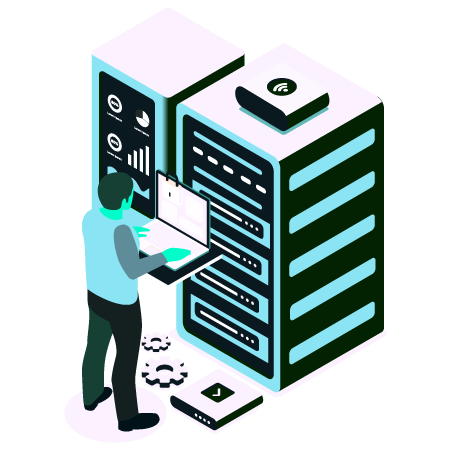A dedicated server is a powerful and exclusive hosting solution that provides users with full control and access to an entire physical server. Unlike shared hosting or virtual private servers (VPS), where multiple users share server resources, a dedicated server is entirely devoted to a single user or organization. This hosting model offers unparalleled performance, customization options, and security, making it an ideal choice for businesses, large websites, and applications with high traffic and resource requirements.
Key Features of Dedicated Servers:

- Exclusive Server Resources: With a dedicated server, all the resources – including CPU, RAM, storage, and bandwidth – are dedicated solely to the user or organization. This exclusivity ensures consistent and high-performance computing power.
- Full Administrative Access: Users get full root or administrator access to the server, granting them complete control over its configuration, software installations, and security settings. This level of control allows for extensive customization and optimization based on specific requirements.
- Enhanced Performance: Dedicated servers offer superior performance compared to shared hosting or VPS. Since users have access to the entire server, there is no competition for resources, resulting in faster load times, improved response rates, and the ability to handle higher concurrent user traffic.
- Customization Options: Users can tailor the server environment to meet their exact needs. This includes selecting the operating system, configuring software applications, and implementing security measures specific to their requirements. The flexibility of a dedicated server makes it suitable for various use cases.
- Scalability: Dedicated servers are highly scalable. As the needs of a website or application grow, users can upgrade their server by adding more resources, such as additional RAM, storage, or processing power. This scalability ensures that the server can accommodate increased demands over time.
- Isolation and Security: Dedicated servers provide a higher level of security compared to shared hosting. Since there are no other users on the same server, the risk of security vulnerabilities from neighboring accounts is eliminated. Users can implement their own security measures, such as firewalls and encryption, to safeguard their data.
- Dedicated IP Address: Each dedicated server comes with its own unique IP address. This is beneficial for various reasons, including better email deliverability, SSL certificate implementation, and greater control over online reputation.
- Reliability and Uptime: The dedicated nature of the server contributes to higher reliability and uptime. With exclusive access to resources, users can optimize server configurations and minimize the risk of performance issues caused by neighboring accounts.

Common Use Cases for Dedicated Servers:
- High-Traffic Websites: Websites with substantial traffic volumes benefit from the enhanced performance and scalability of dedicated servers. Popular e-commerce sites, news portals, and content-heavy platforms often choose dedicated hosting to ensure a seamless user experience.
- Resource-Intensive Applications: Applications that require significant computational power, such as complex databases, resource-intensive software, or large-scale content management systems, are well-suited for dedicated servers.
- Gaming Servers: Dedicated servers are commonly used for hosting online gaming platforms. The robust resources and low latency provided by dedicated servers contribute to a smooth gaming experience for players.
- Business and Enterprise Applications: Businesses and enterprises that require a secure and customizable hosting environment for their web applications, databases, and communication tools often opt for dedicated servers to meet their specific needs.
- Development and Testing Environments: Dedicated servers provide an ideal environment for software development, testing, and quality assurance. Developers can have full control over the server environment, facilitating the creation and testing of applications in a controlled setting.
In summary, a dedicated server stands as a pinnacle of hosting solutions, offering unparalleled control, performance, and security to users. It serves as the foundation for robust online platforms, accommodating the demands of high-traffic websites, resource-intensive applications, and critical business operations. The decision to choose a dedicated server hinges on the specific requirements and objectives of the user or organization, seeking a hosting solution that empowers them with flexibility, reliability, and optimal performance.


